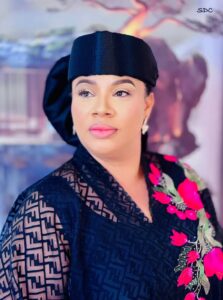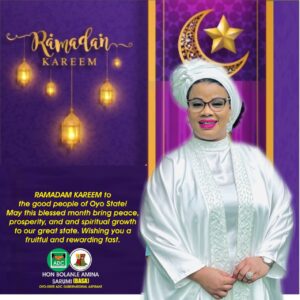……Read What’s In The Constitution

With the National Assembly results declared so far, the race for the leadership of the Senate may have begun. The names of Ahmed Lawan, Godswill Akpabio, Orji Uzor Kalu, Adams Oshiomhole, Barau Jibrin and Sani Musa are some that have been bandied as possible candidates when the 10th National Assembly is inaugurated on June 13.
The National Assembly election threw up a lot of surprises. Parties least expected to produce lawmakers now have substantial seats at the Red Chamber. The presence of so many minority parties has ended the ambition of some ranking lawmakers who had their eyes on the seat of the Senate president. Though the ruling party will still have a majority in the parliament and will be able to determine who occupies the two key offices of presiding over the 10th Senate, it will have to ally with the opposition lawmakers to secure the majority of votes needed to pass critical laws. The formal inauguration of the 10th Senate is expected to take place on Tuesday, June 13, 2023, after the due proclamation of the 10th National Assembly by the incoming president.
To clinch the seats, alignments and realignments are already being made by would-be contestants as a way of getting an edge over other contenders by senators-elect believed to be interested in occupying the number one seat in the 10th Senate.
Already, according to the Chairman of the Independent National Electoral Commission (INEC), Professor Mahmood Yakubu, the number of senators-elect during the National Assembly election and their political parties include the ruling All Progressives Congress (APC) with 56 senators, the Peoples Democratic Party (32), Labour Party (7), the New Nigeria Peoples Party (2), Social Democratic Party (2), the All Progressives Grand Alliance (1) and the Young Progressives Party (1). The number of seats declared by INEC so far is 101. Eight seats are yet to be filled.
ALSO READ: 10th Senate: APC Leads with 51 slots, PDP 27, LP 7 As 30 Serving Lawmakers Return
From the above, it is clear that the APC won more than half of the 109 seats and will by tradition produce the two presiding officers – the Senate President and the Deputy Senate President – of the 10th Senate.
However, the contestation for the Senate’s presidency among the APC senators-elect that are ranking, as well as first timers that may want to take a shot at the seat promises to be both tough and interesting. The political clout, personality and antecedents of senators-elect already being rumoured as having the ambition to lead the Senate would be on display by the time the race finally kicks off.
It must be noted that any of the contenders endorsed by the APC after due consideration for zoning would emerge victorious.
Some of the senators-elect that may be vying for the position of Senate president include incumbent Senate President Ahmad Lawan, Chief Whip of the Senate and ex-governor of Abia State, Senator Orji Uzor Kalu, former Senate Minority Leader in the 8th Senate and ex-minister of Niger Delta Affairs, Senator Godswill Akpabio, ex-National Chairman of the APC, Comrade Adams Oshiomhole, incumbent chairman of Senate Committee on Appropriation, Senator Barau Jibrin and a one time candidate for the post of national chairman of the APC, Senator Mohammed Sani Musa (APC – Niger East).
Of all these eminently qualified lawmakers and those yet to join the race, it is apparent that the contest would both be tough and unpredictable. However, some of the determining factors for any of the aspirants to emerge Senate president will largely depend on if the APC would zone the position of Senate president and that of the Deputy Senate president to any of the geopolitical zones. Now that the President-elect, Asiwaju Bola Ahmed Tinubu and the Vice President-elect, Senator Kashim Shettima are from the Southwest and Northeast geopolitical zones respectively, it is expected, but not mandatory that the position of Senate president, Deputy Senate president, the Speaker of the House of Representatives and Deputy Speaker of the House of Representatives would be evenly spread among the remaining four geopolitical zones of the country, namely: Northwest, North-Central, Southeast and South-south.
According to provisions of the Senate Standing Orders 2015, the Senate president and his deputy would be elected by a simple majority. Any senator, irrespective of party affiliation, can nominate or be nominated as the would-be Senate president or deputy Senate president. There is also no limit to the number of senators to be so nominated. The provisions say that voting shall be either through electronic or secret ballot, while the clerk of the National Assembly shall serve as the returning officer.
Order 2(1-2) of the Senate Standing Orders 2015 (as amended) reads: “On the first sitting of the new Senate, pursuant to the proclamation of the first sitting by the president of the Federal Republic of Nigeria, senators-elect shall assemble at the time and place so appointed.”
Order 3(1) says: “A senator-elect may before taking the oath as prescribed in the Seventh Schedule to the Constitution of the Federal Republic of Nigeria, take part in the election of the president and deputy president of the Senate.
“(2) Nomination of senators to serve as presiding officers and appointments of principal officers and other officers of the Senate or on any parliamentary delegations shall be in accordance with the ranking of senators.
“In determining ranking the following order shall apply – (i) Senators returning based on the number of times re-elected. (ii) Senators who had been members of the House of Representatives (iii) Senators elected as senators for the first time.”
In addition, Order 3 subsection 3(a), 3(b), 3e (i – ii), 3(h) and 3(i) say: “The election of the Senate president shall be conducted in the following manner: (a) A senator-elect addressing the clerk, shall propose another senator-elect to the Senate to be president of the Senate and shall move that such senator-elect ‘do take the chair of the Senate as president of the Senate’; (b) a senator-elect so nominated and seconded shall inform the Senate whether he or she accepts the nomination. He may then proceed to address the Senate; (e) when two or more senators-elect are nominated and seconded as Senate president, the election shall be conducted as follows:
“(i) by electronic voting; or (ii) voting by secret ballot which shall be conducted by the clerks-at-table using the list of the senators-elect of the Senate who shall each be given a ballot paper to cast his vote, with the proposers and seconder as Teller; (ii) The Clerk of the Senate shall submit the results of the voting to the clerk of the National Assembly who shall then declare the senator-elect with the highest number of votes as the Senate president-elect…; (h) during the election of a Senate president there shall be no debate and no question of privilege may be raised; (i) all senators-elect are entitled to participate in the voting for Senate president and deputy Senate president.”
Some of the senators are believed to be gearing up to contest for the position of Senate president and deputy Senate president and their chances of winning or not winning the seat are as follows:
1. Ahmed Lawan
2. Godswill Akpabio
3. Orji Kalu
4. Adams Oshiomhole
6. Barau Jibrin
7. Mohammed Sani Musa, among others.






